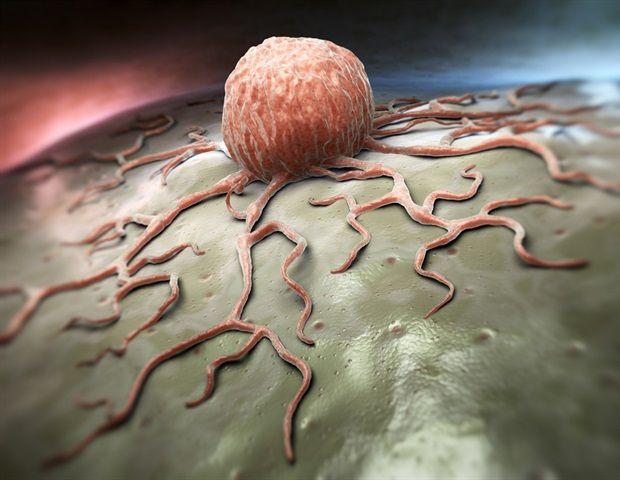AI Models Show Promising Results in Breast Cancer Detection Challenge
2 Sources
2 Sources
[1]
RSNA AI Challenge models show excellent performance for detecting breast cancers on mammograms
Radiological Society of North AmericaAug 12 2025 Algorithms submitted for an AI Challenge hosted by the Radiological Society of North America (RSNA) have shown excellent performance for detecting breast cancers on mammography images, increasing screening sensitivity while maintaining low recall rates, according to a study published today in Radiology, the premier journal of the RSNA. The RSNA Screening Mammography Breast Cancer Detection AI Challenge was a crowdsourced competition that took place in 2023, with more than 1,500 teams participating. The Radiology article details an analysis of the algorithms' performance, led by Yan Chen, Ph.D., a professor in cancer screening at the University of Nottingham in the United Kingdom. We were overwhelmed by the volume of contestants and the number of AI algorithms that were submitted as part of the Challenge. It's one of the most participated-in RSNA AI Challenges. We were also impressed by the performance of the algorithms given the relatively short window allowed for algorithm development and the requirement to source training data from open-sourced locations." Yan Chen, Ph.D., professor in cancer screening, University of Nottingham The goal of the Challenge was to source AI models that improve the automation of cancer detection in screening mammograms, helping radiologists work more efficiently, improving the quality and safety of patient care, and potentially reducing costs and unnecessary medical procedures. RSNA invited participation from teams across the globe. Emory University in Atlanta, Georgia, and BreastScreen Victoria in Australia provided a training dataset of around 11,000 breast screening images, and Challenge participants could also source publicly available training data for their algorithms. Prof. Chen's research team evaluated 1,537 working algorithms submitted to the Challenge, testing them on a set of 10,830 single-breast exams-completely separate from the training dataset-that were confirmed by pathology results as positive or negative for cancer. Altogether, the algorithms yielded median rates of 98.7% specificity for confirming no cancer was present on mammography images, 27.6% sensitivity for positively identifying cancer, and a recall rate-the percentage of the cases that AI judged positive-of 1.7%. When the researchers combined the top 3 and top 10 performing algorithms, it boosted sensitivity to 60.7% and 67.8%, respectively. "When ensembling the top performing entries, we were surprised that different AI algorithms were so complementary, identifying different cancers," Prof. Chen said. "The algorithms had thresholds that were optimized for positive predictive value and high specificity, so different cancer features on different images were triggering high scores differently for different algorithms." According to the researchers, creating an ensemble of the 10 best-performing algorithms produced performance that is close to that of an average screening radiologist in Europe or Australia. Individual algorithms showed significant differences in performance depending on factors such as the type of cancer, the manufacturer of the imaging equipment and the clinical site where the images were acquired. Overall, the algorithms had greater sensitivity for detecting invasive cancers than for noninvasive cancers. Since many of the participants' AI models are open source, the results of the Challenge may contribute to the further improvement of both experimental and commercial AI tools for mammography, with the goal of improving breast cancer outcomes worldwide, Prof. Chen explained. "By releasing the algorithms and a comprehensive imaging dataset to the public, participants provide valuable resources that can drive further research and enable the benchmarking that is required for the effective and safe integration of AI into clinical practice," she said. The research team plans to conduct follow-up studies to benchmark the performance of the top Challenge algorithms against commercially available products using a larger and more diverse dataset. "Additionally, we will investigate the effectiveness of smaller, more challenging test sets with robust human reader benchmarks-such as those developed by the PERFORMS scheme, a UK-based program for assessing and assuring the quality of radiologist performance as an approach for AI evaluation, and compare its utility to that of large-scale datasets," Prof. Chen said. RSNA hosts an AI Challenge annually, with this year's competition seeking submissions for models that help detect and localize intracranial aneurysms. Radiological Society of North America Journal reference: Chen, Y., et al. (2025) Performance of Algorithms Submitted in the 2023 RSNA Screening Mammography Breast Cancer Detection AI Challenge. Radiology. doi.org/10.1148/radiol.241447.
[2]
AI challenge models can independently interpret mammograms
Algorithms submitted for an AI Challenge hosted by the Radiological Society of North America (RSNA) have shown excellent performance for detecting breast cancers on mammography images, increasing screening sensitivity while maintaining low recall rates, according to a study published in Radiology. The RSNA Screening Mammography Breast Cancer Detection AI Challenge was a crowdsourced competition that took place in 2023, with more than 1,500 teams participating. The Radiology article details an analysis of the algorithms' performance, led by Yan Chen, Ph.D., a professor of cancer screening at the University of Nottingham in the United Kingdom. "We were overwhelmed by the volume of contestants and the number of AI algorithms that were submitted as part of the Challenge," Prof. Chen said. "It's one of the most participated-in RSNA AI Challenges. We were also impressed by the performance of the algorithms given the relatively short window allowed for algorithm development and the requirement to source training data from open-sourced locations." The goal of the Challenge was to source AI models that improve the automation of cancer detection in screening mammograms, helping radiologists work more efficiently, improving the quality and safety of patient care, and potentially reducing costs and unnecessary medical procedures. RSNA invited participation from teams across the globe. Emory University in Atlanta, Georgia, and BreastScreen Victoria in Australia provided a training dataset of around 11,000 breast screening images, and Challenge participants could also source publicly available training data for their algorithms. Prof. Chen's research team evaluated 1,537 working algorithms submitted to the Challenge, testing them on a set of 10,830 single-breast exams -- completely separate from the training dataset -- that were confirmed by pathology results as positive or negative for cancer. Altogether, the algorithms yielded median rates of 98.7% specificity for confirming no cancer was present on mammography images, 27.6% sensitivity for positively identifying cancer, and a recall rate -- the percentage of the cases that AI judged positive -- of 1.7%. When the researchers combined the top 3 and top 10 performing algorithms, it boosted sensitivity to 60.7% and 67.8%, respectively. "When ensembling the top performing entries, we were surprised that different AI algorithms were so complementary, identifying different cancers," Prof. Chen said. "The algorithms had thresholds that were optimized for positive predictive value and high specificity, so different cancer features on different images were triggering high scores differently for different algorithms." According to the researchers, creating an ensemble of the 10 best-performing algorithms produced a performance that is close to that of an average screening radiologist in Europe or Australia. Individual algorithms showed significant differences in performance depending on factors such as the type of cancer, the manufacturer of the imaging equipment and the clinical site where the images were acquired. Overall, the algorithms had greater sensitivity for detecting invasive cancers than for noninvasive cancers. Since many of the participants' AI models are open source, the results of the Challenge may contribute to the further improvement of both experimental and commercial AI tools for mammography, with the goal of improving breast cancer outcomes worldwide, Prof. Chen explained. "By releasing the algorithms and a comprehensive imaging dataset to the public, participants provide valuable resources that can drive further research and enable the benchmarking that is required for the effective and safe integration of AI into clinical practice," she said. The research team plans to conduct follow-up studies to benchmark the performance of the top Challenge algorithms against commercially available products using a larger and more diverse dataset. "Additionally, we will investigate the effectiveness of smaller, more challenging test sets with robust human reader benchmarks -- such as those developed by the PERFORMS scheme, a UK-based program for assessing and assuring the quality of radiologist's performance as an approach for AI evaluation, and compare its utility to that of large-scale datasets," Prof. Chen said. RSNA hosts an AI Challenge annually, with this year's competition seeking submissions for models that help detect and localize intracranial aneurysms.
Share
Share
Copy Link
AI algorithms from the RSNA Screening Mammography Breast Cancer Detection AI Challenge demonstrate excellent performance in detecting breast cancers on mammograms, potentially improving screening efficiency and patient care.
AI Challenge Yields Promising Results for Breast Cancer Detection
The Radiological Society of North America (RSNA) hosted a groundbreaking AI Challenge in 2023, focusing on breast cancer detection in mammography images. The results, recently published in the journal Radiology, reveal significant advancements in AI-powered breast cancer screening
1
.
Source: Medical Xpress
Challenge Overview and Participation
The RSNA Screening Mammography Breast Cancer Detection AI Challenge attracted over 1,500 teams globally. Participants were tasked with developing AI models to improve the automation of cancer detection in screening mammograms. The challenge provided a training dataset of approximately 11,000 breast screening images from Emory University and BreastScreen Victoria, with participants also allowed to use publicly available data
2
.Impressive Performance Metrics
Dr. Yan Chen, a professor in cancer screening at the University of Nottingham, led the analysis of the submitted algorithms. The research team evaluated 1,537 working algorithms using a separate test set of 10,830 single-breast exams. The results were remarkable:
- Median specificity: 98.7% for confirming absence of cancer
- Median sensitivity: 27.6% for positively identifying cancer
- Median recall rate: 1.7%
Notably, when combining the top 3 and top 10 performing algorithms, sensitivity increased to 60.7% and 67.8%, respectively
1
.Ensemble Approach and Radiologist Comparison

Source: News-Medical
The research team discovered that different AI algorithms were complementary, identifying various cancer features across images. By creating an ensemble of the 10 best-performing algorithms, they achieved performance comparable to that of an average screening radiologist in Europe or Australia
2
.Related Stories
Factors Affecting Algorithm Performance
The study revealed that individual algorithms showed significant performance differences based on various factors:
- Type of cancer (invasive vs. noninvasive)
- Imaging equipment manufacturer
- Clinical site where images were acquired
Overall, the algorithms demonstrated greater sensitivity in detecting invasive cancers compared to noninvasive ones
1
.Potential Impact and Future Directions
The challenge results hold promise for improving breast cancer outcomes worldwide. Many of the AI models developed are open-source, potentially contributing to the advancement of both experimental and commercial AI tools for mammography
2
.Dr. Chen's team plans to conduct follow-up studies, including:
- Benchmarking top Challenge algorithms against commercial products
- Investigating smaller, more challenging test sets with robust human reader benchmarks
- Comparing the utility of these approaches to large-scale datasets
The RSNA continues to host annual AI Challenges, with the current year focusing on models for detecting and localizing intracranial aneurysms
1
.References
Summarized by
Navi
[1]
[2]
Related Stories
Recent Highlights
1
ByteDance's Seedance 2.0 AI video generator triggers copyright infringement battle with Hollywood
Policy and Regulation

2
Demis Hassabis predicts AGI in 5-8 years, sees new golden era transforming medicine and science
Technology

3
Nvidia and Meta forge massive chip deal as computing power demands reshape AI infrastructure
Technology








